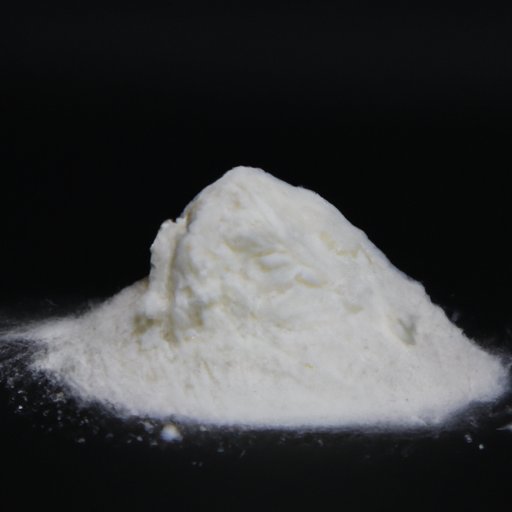
Introduction
If you’re serious about your athletic performance or muscle mass gains, you’ve probably heard about creatine. Creatine is a popular supplement used by athletes and bodybuilders to increase strength, endurance, and muscle mass. However, with so many different types of creatine products available and conflicting information about dosing and timing, it can be difficult to know how to use creatine properly. In this complete guide, we’ll explore the science behind creatine, how to use it safely and effectively, and real-life testimony from athletes and bodybuilders who have experienced the benefits of creatine supplementation.
The Science behind Creatine: An Exploration of its Mechanisms and Benefits
Creatine is a natural substance produced by our bodies and found in certain foods, such as meat and fish. Its primary function is to help produce energy for our muscles, particularly during high-intensity exercise. When we supplement with creatine, we increase the amount of this energy source available to our muscles, which can lead to improved athletic performance and increased muscle mass. According to research, creatine supplementation can improve power output, endurance, and muscle strength. It can also help increase muscle mass, particularly when combined with resistance training.

From Beginner to Pro: A Complete Guide on How to Use Creatine
Creatine is available in several different forms, including powder, capsules, and tablets. When starting with creatine, it’s important to do your research and choose a high-quality product from a reputable source. The typical dose of creatine is between 3-5 grams per day, taken in divided doses. It’s recommended to start with a loading phase of 20 grams per day for the first week, divided into four equal doses. After the loading phase, the maintenance dose is typically 3-5 grams per day, taken in divided doses. It’s also important to consume plenty of water when supplementing with creatine to prevent dehydration.
The Most Effective Dosage and Timing of Creatine Supplementation
The timing of creatine supplementation is also important for maximizing its benefits. Some research suggests that taking creatine post-workout may enhance the muscle’s absorption of creatine, while others suggest that taking creatine pre-workout may lead to greater performance gains. It may also be helpful to take creatine with a source of carbohydrates, which can help increase insulin levels and improve creatine absorption. It’s important to follow the recommended dosage guidelines and avoid taking more than 5 grams per day, as this may increase the risk of side effects.
Debunking the Myths around Creatine and its Side Effects
One of the most common myths surrounding creatine is that it can be harmful to the kidneys. However, numerous studies have found that short-term creatine supplementation is safe and does not cause any adverse effects on kidney function. While some users may experience mild side effects, such as stomach upset or cramping, these are usually preventable by following dosage guidelines and staying adequately hydrated.
Maximizing the Effects of Creatine with Combination Supplementation
While creatine can be effective on its own, combining it with other supplements or nutrients may enhance its effects. For example, consuming carbohydrates along with creatine may increase the amount of creatine stored in the muscles, leading to greater performance gains. Other supplements, such as beta-alanine and caffeine, may also have synergistic effects when taken with creatine. However, it’s important to do your research and consult with a healthcare provider before combining supplements.
Real-Life Testimonials: Athletes and Bodybuilders Share their Experience Using Creatine
Many athletes and bodybuilders have experienced significant performance gains and increased muscle mass through creatine supplementation. For example, powerlifters may notice increased strength and power output, while bodybuilders may experience greater muscle hypertrophy. Some users may also experience increased endurance, which can be beneficial for high-intensity sports such as sprinting or soccer. However, it’s important to remember that individual results may vary.
Beyond Bodybuilding: Unconventional Uses of Creatine for Health and Wellness
While most of the research on creatine has focused on its benefits for athletic performance and muscle mass, there is some evidence to suggest that creatine may have other health benefits as well. For example, some studies have found that creatine may improve cognitive function, particularly in older adults. Creatine may also have cardioprotective effects, and some research suggests that it may help lower blood sugar levels in people with diabetes.
Conclusion
Creatine is a safe and effective supplement that can help improve athletic performance, increase muscle mass, and provide other potential health benefits. By following the recommended dosage guidelines, staying hydrated, and incorporating creatine into a well-rounded fitness regimen, users can experience significant gains in strength, endurance, and overall fitness. So, whether you’re a seasoned athlete or just starting out on your fitness journey, creatine is an excellent supplement to consider.





